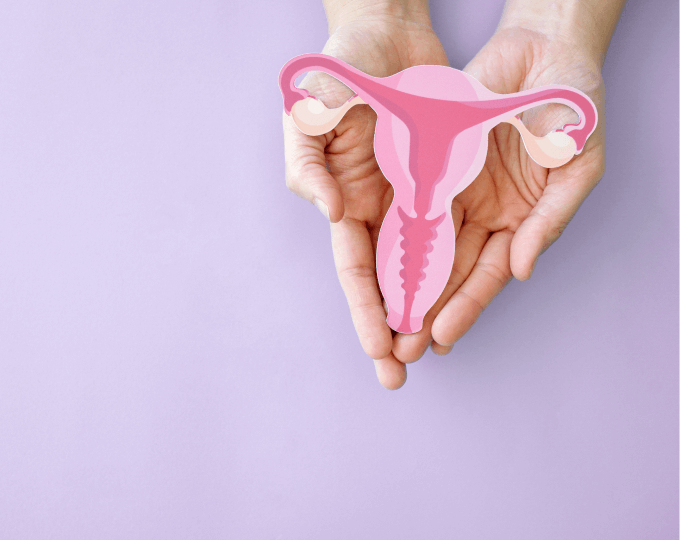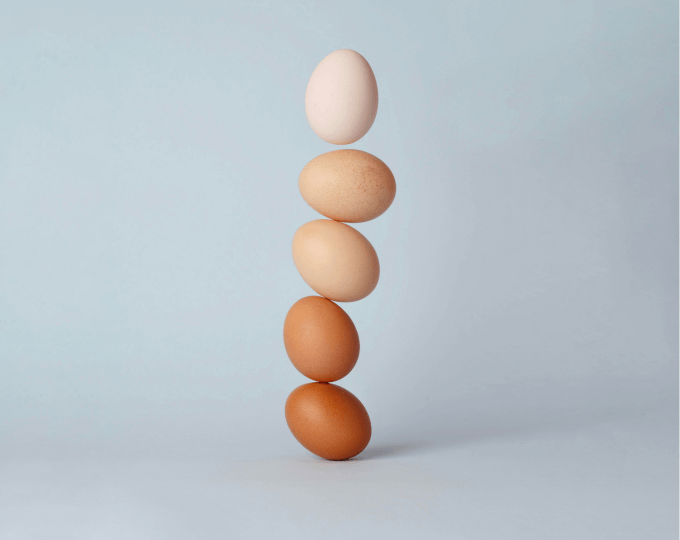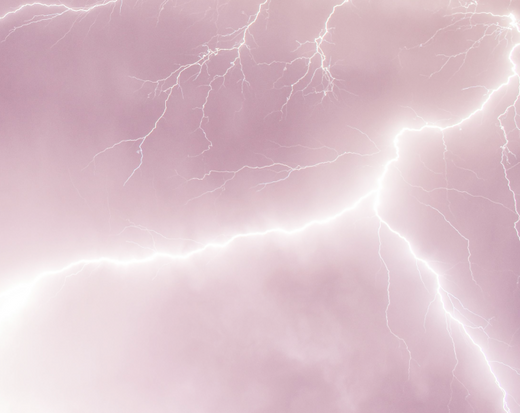Themen dieses Blogartikels:
Table of contents
- From premenopause to postmenopause: The phases of menopause explained
- Phase 1: Premenopause
- Phase 2: Perimenopause
- Phase 3: Menopause
- Phase 4: Postmenopause
- What are the first signs of menopause?
- Everyday tips for a relaxed menopause
- Tips for nutrition during menopause: What is good for your body now
- Natural help for women during menopause: herbal remedies
- Conclusion: Well informed and relaxed through the menopause
- Sources & Bibliography
From premenopause to postmenopause: The phases of menopause explained
Menopause is so named because it's not a sudden change, but rather a process that can stretch over several years . The body gradually adjusts its hormone production. Women experience this transition in four stages and in different ways.
Phase 1: Premenopause
Many women enter premenopause around their 40th birthday. During this time, hormone production changes significantly: The ovaries produce less progesterone and, later, less estrogen.
This often first becomes apparent through small changes in the menstrual cycle . Periods may become more irregular, lighter, or even stop completely for an extended period. Mood swings , breast tenderness, or occasional hot flashes may also accompany this stage.
Since the changes do not yet affect fertility, many women do not even think about menopause.
Phase 2: Perimenopause
Perimenopause begins approximately one to two years before the last menstrual period. It often occurs in the mid- to late 40s and marks a transitional phase with significant fluctuations in hormone levels.
The production of progesterone and estrogen continues to decline, so cycles become significantly more irregular and ovulation sometimes stops.
Phase 3: Menopause
Perimenopause ends twelve months after your last menstrual period—and thus exactly one year after menopause. Menopause itself is a specific point in time , marking the day of your last period . So, you only realize you've reached this point in retrospect. On average, this happens at around age 51, but some women experience menopause as early as their mid-40s.
During this stage , the ovaries stop functioning . Hardly any estrogen is produced, and ovulation no longer occurs, which is why women can no longer become pregnant after menopause. Perimenopause ends twelve months after the last menstrual period – and thus exactly one year after menopause. Menopause itself is a specific point in time that marks the day of your last period . So you only realize in retrospect that you have reached this point. On average, this happens at around 51 years of age, but some women experience menopause as early as their mid-40s.
During this stage , the ovaries cease to function . Estrogen production is low, and ovulation no longer occurs, which is why women after menopause can no longer become pregnant.
Phase 4: Postmenopause
Immediately after menopause, postmenopause begins, the duration of which varies from woman to woman. Hormonal balance has now permanently adjusted to a new level, and typical symptoms such as hot flashes gradually subside .
However, the risk of osteoporosis or cardiovascular disease increases. Studies suggest that one in three postmenopausal women develops osteoporosis.¹ Overall, women are estimated to lose up to 20 percent of their bone mass² in the first few years after menopause. Due to the hormonal changes, the body no longer benefits from natural estrogen protection.


What are the first signs of menopause?
Not every woman notices the onset of menopause immediately. Many changes creep in , and often it's only in retrospect that it becomes clear what's actually going on. An early, typical sign is an irregular cycle .
In addition, so-called vasomotor and emotional symptoms can occur.³ Vasomotor means that the symptoms affect the movement of the blood vessels and you are most likely to feel this in the form of hot flashes .
The most common symptoms of menopause include:
- Hot flashes
- Night sweats
- Sleep disorders
- Vaginal dryness
- Mood swings or irritability
- Tiredness or exhaustion
- Concentration problems
- Feeling of tension in the chest
- Water retention
- Weight gain
- Joint or muscle pain
Not every woman experiences all of these symptoms. About one-third of women experience more severe symptoms, while another third experience only mild symptoms.⁴ However, it's important to remember that your symptoms are not your imagination, but the result of real hormonal changes .
It's also a fact that your body's hormones change during menopause, and your risk of certain diseases can increase. Therefore, it's important to support your body during this time with exercise and proper nutrition
Advertisement
- Specially developed for women's health & the hormonal system
- With the premium natural ingredients Ashwagandha, Green Tea Extract (EGCG), Astaxanthin & Dong Quai
- Supplemented with vitamin B6 & pantothenic acid for hormone regulation
- No fillers or flavors
- Developed with doctors & experts
- Delicious taste
- Easy-to-dose liquid product


Everyday tips for a relaxed menopause
There are various options to support the body during menopause, including hormonal treatments. However, many women over 40 prefer to first adjust their lifestyle to improve their well-being.
Whether you experience menopause as a turning point, experience mild symptoms, or want to prepare for the hormonal rollercoaster ride, the following everyday tips show what is possible without hormone therapy.
Keep moving
Regular physical activity is important at every stage of life and regardless of gender. Have you been a couch potato your whole life? It's never too late to become physically active! It's especially worthwhile during menopause: during this time, women gain weight more easily, muscle mass decreases, and more fat accumulates, particularly around the abdomen, than in a 25-year-old.
Studies also show that exercise can alleviate various menopausal symptoms.⁵ It's best to combine endurance training such as Nordic walking, cycling, or swimming with strength training .
Endurance training strengthens the heart and circulatory system and helps burn calories, while strength training can prevent age-related muscle and bone loss. Even two to three 30-minute strength training sessions per week can make a difference.⁶
By the way, it's a good idea to incorporate yoga into your training plan: A meta-analysis has shown⁷ that downward-facing dog and similar poses can alleviate various physical and mental ailments .
Relax and reduce stress
Yoga not only strengthens the body but also helps with relaxation . This is important because chronic stress can worsen hormonal fluctuations. Therefore, try to incorporate specific relaxation and mindfulness techniques into your daily routine.
One study found that mindfulness can reduce not only stress but also symptoms of menopause.⁸ This may be because mindful women automatically focus more on their well-being and spend their time on enjoyable activities .
Speaking of activities: In order to reduce stress, in addition to yoga,
- Progressive muscle relaxation,
- daily walks in the fresh air,
- a warm relaxing bath with your favorite fragrance or
- breathing exercises.
Also make sure you get enough sleep .
Tips for better sleep await you in our blog .
Take better care of yourself
Don't just view menopause as a physical change, but from a holistic perspective : It's also a time in life when many women gain new perspectives on their lives. Perhaps this is the first time in a long time that you can consciously take time for yourself.
For some women, menopause is even the starting point for finally leaving unrealistic expectations behind and discovering a new sense of serenity: The children are out of the house, career and relationship are stable, and you finally have more time for self-care . Exercise and relaxation contribute to this, as do good conversations with other women.
Tips for nutrition during menopause: What is good for your body now
Exercise, relaxation, and self-care are one thing. The other key to greater well-being during menopause is nutrition . During this crucial phase of life, it's important to adapt your eating habits to the physical changes.
The mantra for the diet of women during menopause is: less energy, more nutrients.⁹ Here's how to achieve this goal:
A touch of the South on your plate
Make your diet as balanced and plant-based as possible ¹⁰ by being inspired, for example, by Mediterranean cuisine.¹¹
It is based on
- Vegetables
- Fruit
- legumes
- Whole grain products
- healthy fats
- low-fat protein
This diet is also considered anti-inflammatory and can have positive effects on the heart and blood vessels.¹² This is beneficial because declining estrogen can increase the risk of cardiovascular disease.¹³


Integrate Omega-3 fatty acids
If you want to support your cardiovascular system, you should focus on foods that contain Omega 3 when cooking. These include, for example,
- Fish such as salmon or mackerel,
- Flaxseed or
- high-quality vegetable oils.
You can find out more about the benefits and effects of Omega 3 in our blog.
Advertisement
- 300 ml premium natural omega-3 oil from sustainable wild catches
- 1460 mg EPA and 910 mg DHA
- Natural 1.6:1 ratio
- Fatty acid complex consisting of 27 fatty acids
- Pleasant, lemony taste, no fishy taste
- TOTOX value of <10 & purified of heavy metals & co.
- Laboratory tested
- Developed with doctors & experts


Use fiber and complex carbohydrates
After menopause, your body no longer utilizes carbohydrates as efficiently as it used to. Blood sugar spikes after eating may therefore be more severe than before.¹⁴ This can lead to cravings or energy slumps.
What helps are:
- Whole grain
- Legumes
- Vegetables
- high-fiber foods
- protein-rich meals
Incidentally, when estrogen levels drop, the tendency toward insulin resistance increases, and with it the risk of type 2 diabetes.¹⁵ Therefore, it is all the more important to pay attention to stable blood sugar levels and diet during menopause.
Incorporate plant estrogens into your daily routine
If your body is producing less estrogen, you can help: Phytoestrogens are plant substances that resemble the body's own estrogen. They are found in soy products, flaxseed, and red clover, for example. You'll learn more about them below.
Pay attention to calcium & vitamin D
After menopause, bone loss accelerates due to the lack of estrogen, so calcium and vitamin D are your new allies. Vitamin D is important for the body to absorb calcium properly.
So, make sure your diet contains plenty of calcium sources , for example:
- Milk
- yogurt
- Oat drink
- Cheese
- green vegetables
- Nuts
Drink enough & enjoy consciously
Your body needs sufficient fluids, even during menopause. Drinking about two liters of water or unsweetened tea a day supports your metabolism and skin. However, you should avoid too many caffeinated drinks or alcohol.
Natural help for women during menopause: What herbal remedies are available?
To specifically support your body during menopause and to compensate for the falling estrogen levels, you can also use herbal remedies.
- Black cohosh: This North American plant is said to influence the temperature and emotion centers of the brain via the nervous system. Therefore, it is one of the best-known herbal remedies for menopause and can relieve hot flashes, sweating, and mood swings.¹⁶
- Red clover: When it comes to counteracting estrogen deficiency during menopause, isoflavones, which are found in foods such as soy and red clover, can help. These secondary plant substances, known as phytohormones, are similar to the body's own estrogen. Although they are significantly weaker than real estrogen, they can help alleviate typical menopausal symptoms such as hot flashes or vaginal dryness. Anyone who has or is suffering from an estrogen-dependent condition, such as breast cancer, should definitely consult a doctor before use.¹⁷
- Chasteberry: The purple berries of this Mediterranean shrub are often used to treat menstrual problems and can therefore also be helpful during perimenopause. Studies also suggest that regular use can reduce typical symptoms such as hot flashes.¹⁸
- St. John's Wort: St. John's Wort may be helpful for restlessness, mood swings, or sleep disturbances. In a clinical study, the majority of women reported an improvement in their symptoms within a few weeks.¹⁹ However, the herb can interfere with the effectiveness of other medications such as the contraceptive pill or antidepressants.
- Ashwagandha: A possible alternative to St. John's wort is ashwagandha . This plant from Ayurvedic medicine is considered an adaptogen. This means it helps the body cope better with stress. During menopause, ashwagandha can support well-being on several levels, for example, promoting restful sleep, relieving restlessness, and having a mild mood-enhancing effect.
- Sage, lavender, valerian: These plants are particularly popular for supporting mild menopausal symptoms. Sage is often used as a home remedy for excessive sweating, while lavender and valerian are said to have a calming effect.
When using herbal remedies, it is important to pay attention to tested and high-quality preparations and to coordinate their use with your doctor.
Conclusion: Well informed and relaxed through the menopause
Menopause is a time of change. However, it also offers you the opportunity to take even more care of yourself and enjoy the time afterward with peace of mind. In addition to sufficient exercise and targeted relaxation, a balanced diet plays an important role during menopause, when hormones are rebalancing. And with herbal support, you can harness the power of nature to gently improve your well-being during this turbulent time.
This article is based on carefully researched sources:
Sources & Bibliography
- osteoporose-deutschland.de/osteoporose/ursachen-und-risikofaktors/
- endocrine.org/patient-engagement/endocrine-library/menopause-and-bone-loss/
- frauengesundheitsportal.de/themen/wechseljahre/moegliche-beschwerden-in-den-wechseljahren/
- aerzteblatt.de/archiv/beschwerden-in-den-wechseljahren-nicht-nur-eine-frage-der-hormonellen-situation-2e85c473-1072-41fc-978f-bb610c8b17f1
- Nguyen, TM, Do, TTT, Tran, TN, & Kim, JH (2020). Exercise and Quality of Life in Women with Menopausal Symptoms: A Systematic Review and Meta-Analysis of Randomized Controlled Trials. International journal of environmental research and public health, 17(19), 7049.
- aerzteblatt.de/archiv/intensity-and-effects-of-strength-training-in-the-old-6150ae2f-de88-47a2-bbf6-879358bab757
- deutschesgesundheitsportal.de/2025/04/23/positive-auswirkungen-von-yoga-auf-wechseljahresbeschwerden-2/
- medscape.com/viewarticle/903320#vp_2
- dge.de/blog/2024/ernaehrung-in-den-wechseljahren/
- vis.bayern.de/essen_trinken/zielgruppen/ernaehrung_wechseljahre.htm
- Pugliese, G., Dr, Barrea, L., Dr, Laudisio, D., Dr, Aprano, S., Dr, Castellucci, B., Dr, Framondi, L., Dr, Di Matteo, R., Dr, Savastano, S., Prof, Colao, A., Prof, & Muscogiuri, G., Dr (2020). Mediterranean diet as a tool to manage obesity in menopause: A narrative review. Nutrition (Burbank, Los Angeles County, Calif.), 79-80, 110991.
- herzstiftung.de/ihre-herzgesundheit/gesund-bleiben/ernaehrung/mediterrane-ernaehrung
- wechselweise.net/news/herzinfarkt-risiko-steigt-mit-sinkendem-estrogenspiegel
- Bermingham, KM, Linenberg, I., Hall, WL, Kadé, K., Franks, PW, Davies, R., Wolf, J., Hadjigeorgiou, G., Asnicar, F., Segata, N., Manson, JE, Newson, LR, Delahanty, LM, Ordovas, JM, Chan, AT, Spector, TD, Valdes, AM, & Berry, SE (2022). Menopause is associated with postprandial metabolism, metabolic health and lifestyle: The ZOE PREDICT study. EBioMedicine, 85, 104303.
- Catalano, D., Trovato, GM, Spadaro, D., Martines, GF, Garufi, G., Tonzuso, A., Grasso, D., & Sciacchitano, SG (2008). Insulin resistance in postmenopausal women: concurrent effects of hormone replacement therapy and coffee. Climacteric: the journal of the International Menopause Society, 11(5), 373–382.
- Ghazanfarpour, M., Sadeghi, R., Roudsari, RL, Khorsand, I., Khadivzadeh, T., & Muoio, B. (2016). Red clover for treatment of hot flashes and menopausal symptoms: A systematic review and meta-analysis. Journal of obstetrics and gynecology: the journal of the Institute of Obstetrics and Gynecology, 36(3), 301–311.
- natuerlich.thieme.de/heilpflanzen/detail/isoflavones-from-red-clover-for-menopausal-discomfort-3435
- Rozita Naseri, R., Farnia, R., Yazdchi, K., Alikhani, M., Basanj, B., Salemi, S. (2019). Comparison of Vitex agnus-castus Extracts with Placebo in Reducing Menopausal Symptoms: A Randomized Double-Blind Study in Korean Journal of Family Medicine 2019;40(6):362-367.
- Grube, B., Walper, A., & Wheatley, D. (1999). St. John's Wort extract: efficacy for menopausal symptoms of psychological origin. Advances in therapy, 16(4), 177-186.
- Gopal, S., Ajgaonkar, A., Kanchi, P., Kaundinya, A., Thakare, V., Chauhan, S., & Langade, D. (2021). Effect of an ashwagandha (Withania Somnifera) root extract on climacteric symptoms in women during perimenopause: A randomized, double-blind, placebo-controlled study. The journal of obstetrics and gynecology research, 47(12), 4414–4425.













